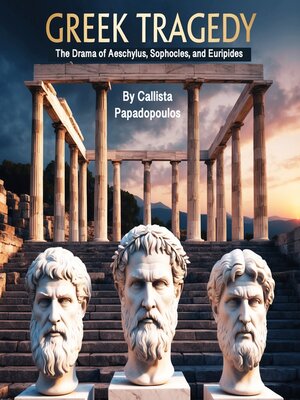Greek Tragedy
audiobook (Unabridged) ∣ The Drama of Aeschylus, Sophocles, and Euripides
By Callista Papadopoulos

Sign up to save your library
With an OverDrive account, you can save your favorite libraries for at-a-glance information about availability. Find out more about OverDrive accounts.
Find this title in Libby, the library reading app by OverDrive.



Search for a digital library with this title
Title found at these libraries:
| Library Name | Distance |
|---|---|
| Loading... |
This audiobook is narrated by a digital voice.
The birth of tragedy in ancient Athens represents one of humanity's most profound artistic and intellectual achievements, transforming religious ritual into sophisticated dramatic art that continues to illuminate the deepest mysteries of human existence. This revolutionary development, occurring primarily during the sixth and fifth centuries BCE, emerged from the complex intersection of religious devotion, political innovation, and artistic experimentation that characterized classical Athenian civilization at its most creative and confident period.
The origins of tragic drama lie deeply embedded in the religious practices surrounding Dionysus, the god of wine, ecstasy, and transformation whose worship provided both the institutional framework and spiritual foundation for theatrical development. The cult of Dionysus had entered Greece from Thrace and Asia Minor, bringing with it orgiastic rituals and ecstatic practices that challenged conventional social boundaries while offering profound experiences of transcendence and spiritual renewal. These Dionysiac celebrations, known as dithyrambs, involved groups of singers and dancers who would perform hymns of praise while embodying various aspects of the god's mythological adventures and transformations.
The transformation of these religious celebrations into formal dramatic performances required the genius of individual innovators working within supportive institutional contexts that encouraged artistic experimentation and excellence. According to ancient tradition, the crucial breakthrough came through the work of Thespis, a sixth-century performer who introduced the revolutionary concept of an individual actor who could step out of the chorus and engage in dialogue with the group.







